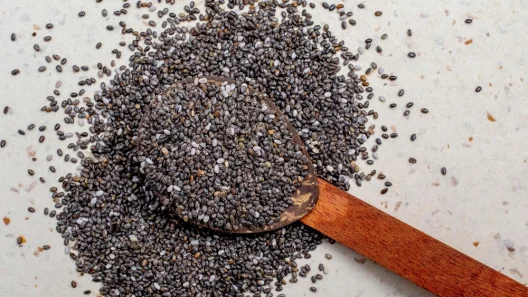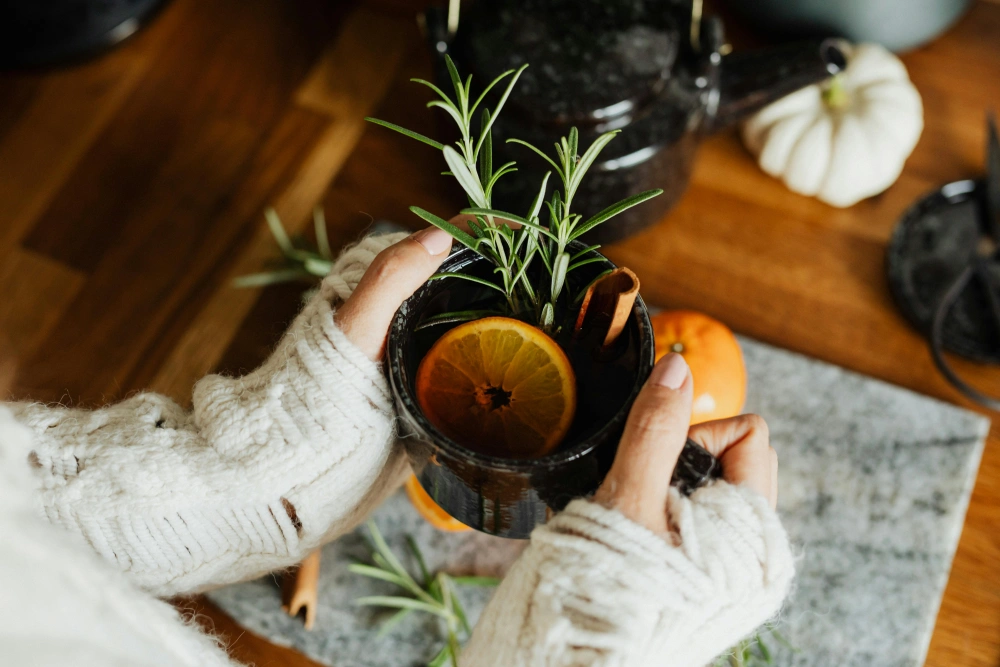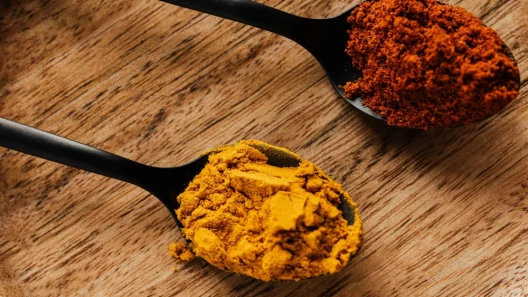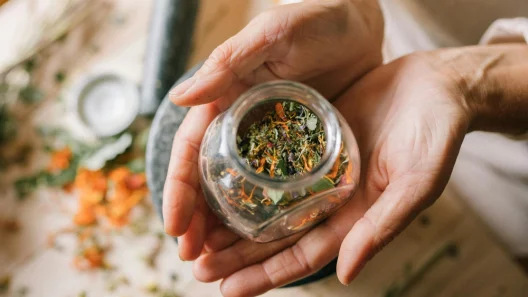Immune health has never been more top-of-mind than in recent years, as people increasingly seek ways to support their body’s natural defenses against illness. While modern medicine offers vital protections like vaccines and antiviral treatments, there’s growing interest in traditional natural remedies that have been used for centuries across various cultures. At MyGreenRemedy, we believe in a balanced approach that combines the wisdom of traditional practices with the insights of modern science. This article explores time-honored natural immune boosters you can prepare at home, examining both their historical uses and the scientific evidence behind their purported benefits. Remember, these remedies are meant to complement rather than replace conventional medical advice and treatments, and should be used as part of a holistic approach to health that includes proper nutrition, adequate sleep, stress management, and regular exercise.
Understanding the Immune System
How Immunity Works
Your immune system is a complex network of cells, tissues, and organs that work together to defend your body against harmful pathogens like bacteria, viruses, and other foreign invaders. This sophisticated defense system includes physical barriers (like skin and mucous membranes), innate immunity (your first line of defense), and adaptive immunity (which develops memory of previous infections for faster response upon re-exposure). When functioning optimally, your immune system can recognize threats, mount an effective response, and then gradually wind down once the threat has been eliminated – all while maintaining tolerance to your own healthy tissues and beneficial microbes.
Factors Influencing Immune Function
Multiple factors influence how well your immune system functions, including:
- Nutrition: Adequate intake of essential nutrients is crucial for immune cell production and function.
- Sleep quality: Poor sleep can weaken immune defenses and increase susceptibility to infection.
- Stress levels: Chronic stress elevates cortisol, which can suppress immune function.
- Gut health: Approximately 70% of immune cells reside in the gut, making digestive health crucial to immunity.
- Exercise: Moderate regular activity supports immune function, while excessive intense exercise may temporarily suppress it.
Traditional Natural Immune Boosters
Herbal Teas & Tonics
Ginger Tea
Ginger has been used for centuries in traditional medicine systems across Asia for its digestive and immune-supporting properties. Modern research has identified gingerol, the main bioactive compound in ginger, as having potent anti-inflammatory and antioxidant effects. Ginger may help support immune function by reducing inflammation, which can otherwise divert immune resources away from fighting pathogens. To make a simple immune-supporting ginger tea, steep fresh ginger slices in boiling water for 10-15 minutes, then strain and enjoy. Add a squeeze of lemon and a teaspoon of honey for additional immune-supporting benefits.
Turmeric Golden Milk
Turmeric contains curcumin, a compound with strong anti-inflammatory and antioxidant properties. In Ayurvedic tradition, turmeric has been used for thousands of years to support overall health and immunity. When combined with black pepper (which enhances curcumin absorption) and healthy fats (which improve its bioavailability), turmeric becomes especially potent. Golden milk, a traditional Ayurvedic beverage, combines turmeric with milk (dairy or plant-based), healthy fats like coconut oil, black pepper, and other spices like cinnamon for a soothing immune-supporting drink.
Elderberry Syrup
Elderberry has a long history of use in European traditional medicine for immune support. Rich in anthocyanins (powerful antioxidants), elderberry is believed to support immune function by reducing oxidative stress and potentially inhibiting viral replication. Some studies suggest elderberry may help reduce the duration and severity of cold and flu symptoms, though more research is needed to confirm these effects and establish optimal dosing.
Vitamin C-Rich Remedies
Citrus Tonics
Citrus fruits like oranges, lemons, grapefruits, and limes are rich in vitamin C, a nutrient essential for immune function. Vitamin C supports various immune system functions, including enhancing white blood cell production and function, strengthening skin barriers against pathogens, and acting as an antioxidant to protect immune cells from damage. Traditional citrus tonics often combine lemon or orange juice with honey and warm water for a simple immune-supporting beverage.
Amla (Indian Gooseberry)
Amla, or Indian gooseberry, is a vitamin C-rich fruit that has been used in Ayurvedic medicine for thousands of years. Surprisingly, amla contains approximately 20 times more vitamin C than oranges by weight, making it an exceptionally potent source of this immune-supporting nutrient. In addition to vitamin C, amla contains other beneficial compounds like ellagic acid and gallic acid that have antioxidant properties.
Rosehip Preparations
Rosehips, the fruit of the rose plant, have been used in traditional European medicine as a source of vitamin C, especially during times when fresh citrus was unavailable. Rosehips are remarkably rich in vitamin C – they contain approximately 20-40% more vitamin C than oranges by weight – and also provide other beneficial compounds like polyphenols and carotenoids.
Garlic and Onion Remedies
Garlic as an Antimicrobial
Garlic has been used for its medicinal properties for thousands of years, with ancient civilizations recognizing its value in fighting infections. The main active compound in garlic, allicin, is formed when garlic is chopped or crushed and has demonstrated antibacterial, antiviral, and antifungal properties in laboratory studies. Garlic may support immune function by enhancing immune cell activity and potentially helping to prevent infections. Traditional immune remedies often feature raw or lightly cooked garlic to preserve its beneficial compounds.
Onion-Based Preparations
Onions, like garlic, contain sulfur compounds that may have immune-supporting properties. Traditional medicine systems have used onion preparations for respiratory health, and some laboratory studies have identified antiviral and anti-inflammatory properties in onion extracts. Onions also contain quercetin, a flavonoid with antioxidant and anti-inflammatory effects that may support immune function.
Honey-Based Remedies
Honey with Lemon
Honey has been used for centuries in traditional medicine for its soothing and potential antimicrobial properties. When combined with lemon (which provides vitamin C and flavonoids), honey creates a soothing remedy that may help support immune function and provide relief from throat irritation. The antioxidant content of honey varies depending on the type, with darker honeys generally containing higher levels of antioxidants.
Honey with Cinnamon
The combination of honey and cinnamon has been used in various traditional medicine systems for immune support. Both honey and cinnamon have demonstrated antimicrobial properties in laboratory studies, and cinnamon contains compounds like cinnamaldehyde that have anti-inflammatory effects. This combination is often taken as a preventive measure during cold and flu season or used to soothe throat discomfort.
Fermented Foods for Gut-Immune Support
Yogurt and Kefir
Fermented dairy products like yogurt and kefir contain probiotics (beneficial bacteria) that support gut health, which is crucial for immune function since approximately 70% of immune cells reside in the gut. The “live and active cultures” in yogurt and kefir may help modulate the immune system and enhance its response to pathogens. Regular consumption of fermented dairy products has been associated with reduced inflammation and enhanced immune function in some studies.
Sauerkraut and Kimchi
Fermented vegetables like sauerkraut (fermented cabbage) and kimchi (a spicy Korean fermented vegetable dish) are rich sources of diverse probiotic strains that can support gut health and, consequently, immune function. The fermentation process also enhances the bioavailability of nutrients in the vegetables and may create additional beneficial compounds. Traditional cultures that consume fermented vegetables regularly often view them as important for maintaining health, especially during colder months.
Table: Traditional Immune-Boosting Foods and Their Key Components
| Food/Remedy | Key Immune-Supporting Components | Traditional Use | Modern Scientific Support |
| Elderberry | Anthocyanins, flavonoids, vitamin C | Cold/flu prevention and treatment | Laboratory studies show antiviral properties; some clinical trials support symptom reduction |
| Garlic | Allicin, alliin, sulfur compounds | Infection prevention, immune stimulation | Shown to enhance immune cell activity in some studies; may reduce cold severity |
| Turmeric | Curcumin, turmerones | Anti-inflammatory, immune-modulating | Strong evidence for anti-inflammatory effects; immune effects less studied |
| Ginger | Gingerol, shogaol | Digestive support, anti-inflammatory | Good evidence for anti-inflammatory effects; may support immune function indirectly |
| Citrus fruits | Vitamin C, flavonoids | Scurvy prevention, immune support | Strong evidence for vitamin C in immune cell function; may reduce cold duration |
If you’re looking to give your immune system an increased boost, check our our Evidence-Based Guide to Top Supplements for Immune Support.
DIY Recipes You Can Try at Home
Elderberry Syrup
Ingredients:
- 1 cup dried elderberries
- 4 cups water
- 1 cinnamon stick
- 1 tablespoon fresh ginger, grated
- 1 cup raw honey (added after cooking)
Instructions:
- Combine elderberries, water, cinnamon stick, and ginger in a medium saucepan.
- Bring to a boil, then reduce heat and simmer for 30-45 minutes until liquid is reduced by about half.
- Remove from heat and strain through a fine mesh strainer or cheesecloth, pressing on the berries to extract all liquid.
- Allow liquid to cool until warm but not hot, then stir in honey until fully dissolved.
- Store in a clean glass jar in the refrigerator for up to 3 months.
Dosage: Take 1 tablespoon daily for immune support during cold/flu season, or 1 teaspoon every 2-3 hours at the first sign of illness (for adults). Not recommended for children under 1 year due to honey content.
Turmeric Golden Milk
Ingredients:
- 2 cups milk (dairy or plant-based)
- 1 teaspoon turmeric powder or 1 tablespoon fresh turmeric, grated
- 1 tablespoon coconut oil
- ¼ teaspoon black pepper (enhances curcumin absorption)
- ½ teaspoon cinnamon
- 1 teaspoon honey or maple syrup (optional)
Instructions:
- Combine all ingredients except sweetener in a small saucepan.
- Heat gently over medium heat, whisking continuously until well combined and hot but not boiling.
- Remove from heat and stir in sweetener if desired.
- Pour into mugs and enjoy immediately.
Tips: For a smoother texture, blend the mixture with an immersion blender or in a regular blender. Fresh turmeric may stain utensils and countertops, so handle carefully.
Garlic-Honey Immune Tonic
Ingredients:
- 1 cup raw honey
- 8-10 cloves garlic, peeled and lightly crushed
- 1 tablespoon fresh thyme (optional)
- 1 teaspoon grated ginger (optional)
Instructions:
- Place garlic cloves (and optional herbs) in a clean glass jar.
- Pour honey over the garlic, ensuring all cloves are completely submerged.
- Seal the jar and let it sit at room temperature for 1-2 weeks, turning the jar occasionally.
- After infusing, the honey can be used as needed.
Usage: Take 1 teaspoon of the infused honey daily during cold/flu season, or add to tea when feeling unwell. The garlic cloves can also be eaten for additional benefits.
Science Meets Tradition
Evidence-Based Benefits
Scientific research has begun to validate many traditional uses of immune-supporting remedies:
- Antioxidant effects: Many traditional immune-boosting herbs and foods are rich in antioxidants that help reduce oxidative stress and support immune cell function.
- Anti-inflammatory properties: Chronic inflammation can impair immune function, and many traditional remedies contain compounds that help modulate inflammation.
- Probiotic effects: Fermented foods provide beneficial bacteria that support gut health, which is crucial for proper immune function.
- Antimicrobial activity: Some compounds in traditional remedies like garlic, honey, and elderberry have demonstrated antimicrobial effects in laboratory studies.
Limitations and Complementary Role
While research on traditional remedies is promising, it’s important to recognize their limitations:
- Most studies are preliminary: Many studies on traditional remedies have been conducted in laboratories or animals rather than humans, and more rigorous clinical trials are needed.
- Standardization challenges: The potency of natural remedies can vary significantly based on growing conditions, preparation methods, and storage.
- Complementary, not alternative: These remedies should complement rather than replace conventional medical treatments when needed.
- Dosage uncertainties: Optimal dosages for immune support are often not well-established, and more may not always be better.
Safety and Precautions
General Safety Considerations
While natural immune boosters are generally safe for most people when used appropriately, certain precautions should be observed:
- Quality of ingredients: Use high-quality, organic ingredients when possible to avoid pesticides and other contaminants.
- Allergies: Be aware of potential allergies to ingredients like honey, citrus, or dairy products.
- Sugar content: Some preparations (like syrups) can be high in sugar; use moderation, especially for children.
- Freshness: DIY preparations may have shorter shelf lives than commercial products; refrigerate and use within recommended timeframes.
Special Populations
Certain groups should exercise additional caution with natural remedies:
- Pregnant and breastfeeding women: Should avoid certain herbs like elderberry without medical consultation.
- Children: Dosages need adjustment based on weight/age, and honey should not be given to infants under 1 year due to botulism risk.
- People with autoimmune conditions: Some immune-stimulating herbs might theoretically exacerbate autoimmune conditions.
- Those taking medications: Potential interactions exist, especially for people on blood thinners, diabetes medications, or immunosuppressants.
Medication Interactions
Some natural immune boosters may interact with medications:
- Garlic may increase bleeding risk when taken with blood thinners like warfarin.
- Elderberry might theoretically affect the immune system in ways that could interact with immunosuppressant medications.
- Vitamin C-rich foods in very high doses might affect certain chemotherapy drugs.
- Always consult with a healthcare provider before using herbal remedies if you take prescription medications.
Looking to learn more about holistic approaches to wellness? Start with our Ultimate Guide to Natural Remedies for Everyday Health.
FAQs
How often should you take natural immune boosters?
Answer: For preventive support during cold/flu season, many natural immune boosters can be taken daily (e.g., elderberry syrup, vitamin C-rich foods, garlic). During illness, some remedies can be taken more frequently (e.g., every 2-3 hours), but it’s best to follow specific recipe guidelines and listen to your body’s responses. Taking occasional breaks (e.g., 5 days on, 2 days off) may help prevent adaptation.
Can natural remedies replace vaccines/medicine?
Answer: No, natural remedies should not replace vaccines or necessary medical treatments. Vaccines provide scientifically-proven protection against specific diseases that natural remedies cannot replicate. While natural immune boosters may provide general support, they are not substitutes for medically necessary treatments for existing infections or conditions. Think of them as complementary support rather than alternatives.
Which immune boosters are best for kids?
Answer: Generally safe options for children (over 1 year) include:
- Vitamin C-rich foods like citrus fruits (in moderation)
- Ginger tea with honey (for children over 1)
- Probiotic-rich foods like yogurt
- Garlic incorporated into foods (cooked, not raw)
Always consult with a pediatrician before giving herbal remedies to children, and adjust dosages appropriately based on weight/age.
Do these remedies actually prevent colds/flu?
Answer: While some research suggests certain remedies may reduce the frequency, duration, or severity of colds and flu, no natural remedy can guarantee prevention. The immune system is complex, and many factors influence susceptibility to illness. These remedies are best viewed as part of a comprehensive approach to immune health that includes adequate sleep, stress management, proper nutrition, and good hygiene practices.
Conclusion
Traditional natural immune boosters offer a valuable approach to supporting immune health that blends centuries of traditional wisdom with growing scientific understanding. From elderberry syrup and turmeric golden milk to garlic-based remedies and fermented foods, these time-tested preparations can be effective components of a holistic immune support strategy. However, it’s important to maintain perspective: these remedies are complementary rather than alternative to conventional medical approaches when needed.
The most effective approach to immune health remains a balanced one that includes:
- A nutrient-dense diet rich in diverse fruits, vegetables, and whole foods
- Adequate sleep and stress management
- Regular moderate exercise
- Good hygiene practices and appropriate medical care including vaccinations
- Evidence-based natural remedies as supportive measures
At MyGreenRemedy, we encourage you to explore these traditional immune boosters with both curiosity and caution, paying attention to how your body responds and consulting with healthcare providers when needed. By combining the wisdom of traditional practices with modern scientific understanding, we can develop a balanced, effective approach to supporting our immune health throughout the year.
Remember: Natural remedies require consistency and patience. Unlike pharmaceuticals that often provide quick symptomatic relief, many traditional immune boosters work gradually by supporting the body’s innate healing capacities over time.










